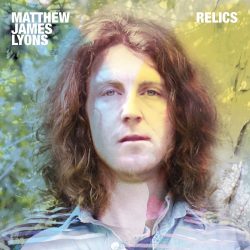Reflective melodies from a modest and gentle Australian songwriter.
 Matthew James Lyons, or Matt as he introduces himself, comes across as a thoroughly decent and self-deprecating bloke. Couple this with the fact you can count on one hand the number of genuine breakout international artists from Australia means that irrespective of his talents you won’t know about him. Given he classifies himself as an independent singer-songwriter and operates in a niche genre like folk-country, this further limits any possibility of broader recognition.
Matthew James Lyons, or Matt as he introduces himself, comes across as a thoroughly decent and self-deprecating bloke. Couple this with the fact you can count on one hand the number of genuine breakout international artists from Australia means that irrespective of his talents you won’t know about him. Given he classifies himself as an independent singer-songwriter and operates in a niche genre like folk-country, this further limits any possibility of broader recognition.
The magic of modern communications has enabled Matt to digitally release his album through ‘well-known’ music streaming services and reach out directly to AUK to promote his debut album “however we see fit” thereby enabling a wider audience to hear his work for the first time.
Matt’s songwriting “delves deep into the tradition of the album as a whole piece, stringing his reflective narratives together through its running themes of loss, faltered hope, and longing. Drawing upon the uncertainties experienced during 2020, each song captures a sense of helplessness and despondency with both sincerity and compassion.” The influences he cites from Paul Simon, Jackson Browne and Paul Kelly are all evident in his work. The combination of warm vocals and acoustic guitar are at the heart of his songs, whether played solo or with a full band, the result is consistently melancholic and melodic.
Recommended tracks on the album include the opening song “Keepers” which is all pedal steel country, “Rhymes”, a well structured, mellow pop song and “Bottleneck to Heaven” which strikes to the heart of his sensitive songwriting with emotion and fragility.
Matt has been writing and performing for more than 20 years and his competence is evident. In this debut he has recorded tracks written throughout that period. The result is a strong and consistent set of eminently listenable songs that demonstrate his strengths without exploring far beyond his natural sweet spot. Given his level of ability, it feels that he could risk more without much probability of criticism.


